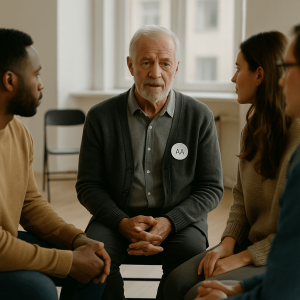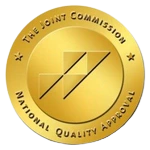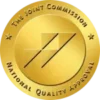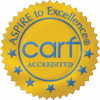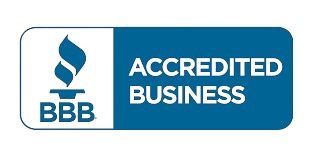Holistic Therapy Services in Murfreesboro, TN
Holistic addiction treatment is a whole-person approach to recovery that addresses more than just the symptoms of substance use—it targets the root causes of addiction by healing the mind, body, and spirit together.
Unlike conventional models that often focus solely on physical detox or behavioral modification, holistic addiction treatment recognizes that recovery requires balance across every aspect of a person’s life.
In holistic care, addiction is seen as a complex condition influenced by emotional pain, spiritual disconnection, trauma, lifestyle factors, and mental health.
The goal isn’t just sobriety—it’s transformation.
Techniques like yoga, meditation, acupuncture, nutritional therapy, and expressive arts are used alongside evidence-based clinical practices to help clients reconnect with themselves, build resilience, and discover new tools for long-term wellness.
This model of care is especially helpful for individuals who have had trouble with traditional rehab or who are looking for a more personalized, empowering path forward.
At Tulip Hill Recovery, we specialize in holistic addiction treatment in Murfreesboro, Tennessee. Our integrated approach ensures that every person receives the care they need to build a meaningful life in recovery.
What Is Holistic Addiction Therapy?
Holistic addiction therapy is a treatment approach that focuses on healing the whole person—physically, mentally, emotionally, and spiritually—rather than just treating the symptoms of substance use.
It recognizes that addiction tends to be rooted in deeper pain, trauma, or imbalance, and lasting recovery requires more than detox or behavioral therapy alone.
At its core, holistic addiction therapy blends evidence-based clinical care with complementary healing practices.
This dual approach allows clients to receive proven treatments like counseling, group therapy, and psychiatric support, while also benefiting from therapies that enhance overall well-being and support self-discovery.
-
Yoga and mindfulness
Promote emotional regulation and body awareness
-
Meditation and breathwork
Calm the nervous system and reduce cravings
-
Acupuncture
Used to ease withdrawal symptoms and support detox
-
Nutritional support
Restore physical health and mood stability
-
Art and music therapy
Express and process difficult emotions
When integrated into a larger holistic substance abuse treatment center like Tulip Hill Recovery, these therapies become part of a personalized care plan tailored to each client’s unique needs and goals.
Holistic addiction therapy doesn’t just treat addiction—it builds a stronger, more connected foundation for lifelong healing.
At Tulip Hill Recovery, our methamphetamine addiction treatment in Murfreesboro is designed to help individuals heal not just physically, but mentally and emotionally as well.
Why Choose Holistic Addiction Treatment in Murfreesboro, Tennessee?
In recent years, more individuals and families across Murfreesboro, Nashville, and surrounding areas of Tennessee have turned to holistic addiction treatment as a more complete path to recovery.
Traditional rehab models often focus narrowly on symptom control—managing cravings, stabilizing behaviors, or addressing substance use without exploring the root causes.
While these clinical approaches can be effective, they sometimes fall short in helping people develop deeper coping strategies or heal from trauma, stress, or spiritual disconnection.
That’s where holistic drug rehabilitation becomes a powerful alternative.
By combining evidence-based treatment with whole-person healing practices, holistic addiction treatment addresses the emotional, physical, and spiritual toll of substance use.
Instead of focusing only on what’s “wrong,” this approach emphasizes reconnection with one’s body, emotions, values, and purpose.
It creates space for self-awareness, emotional resilience, and personal growth—qualities that are essential for long-term recovery.
At Tulip Hill Recovery in Murfreesboro, we see our clients as more than a diagnosis. We know that addiction affects every part of life, and true healing must do the same.
That’s why our holistic addiction treatment in Tennessee includes practices like yoga, acupuncture, mindfulness, art therapy, and nutrition—each one aimed at helping you feel stronger, clearer, and more grounded in who you are.
For those who’ve tried traditional programs without lasting success, or who are seeking something more meaningful, holistic care offers a chance to truly reconnect with life, rediscover yourself, and build recovery that lasts.
If you or your loved one has completed treatment in the past and relapsed, holistic addiction treatment may offer a different, more personalized way forward.
It’s particularly beneficial for individuals who feel disconnected, burned out, or unsupported by conventional rehab models.
At Tulip Hill Recovery, recovery should be as unique as the person experiencing it. That’s why our holistic substance abuse treatment center provides flexible, individualized care that empowers clients to heal fully and stay well.
Holistic Addiction Therapy Services
At Tulip Hill Recovery, we provide a wide range of holistic addiction therapy services designed to complement our evidence-based clinical care.
Located in the heart of Murfreesboro, Tennessee, our facility offers a peaceful, supportive environment where individuals can fully engage in their recovery journey, mind, body, and spirit.
Our holistic services are thoughtfully integrated into every level of care, from detox to intensive outpatient (IOP) and aftercare.
Healing happens on every level, and our holistic addiction treatment in Murfreesboro reflects that commitment with warmth, expertise, and compassion.

Is Holistic Drug Rehabilitation Right for You?
If you’re exploring treatment options and wondering whether holistic drug rehabilitation is the right fit, consider the following questions:
Have you tried traditional rehab or talk therapy without lasting results?
Do you feel emotionally numb, spiritually disconnected, or out of touch with your body?
Are you looking for a treatment approach that feels more personal, flexible, and whole?
Would you benefit from therapies like yoga, meditation, or nutritional counseling alongside clinical care?
If you answered “yes” to any of these, holistic addiction treatment may offer the fresh start you’re looking for. This approach is not about replacing evidence-based treatment—it’s about enhancing it with tools that honor every part of your experience.
Holistic therapy is inclusive and non-denominational.
Whether you’re spiritual, secular, or somewhere in between, this model invites you to reconnect with whatever gives your life meaning and peace.
It’s especially helpful for individuals with a history of trauma, chronic stress, burnout, or emotional disconnection.
At Tulip Hill Recovery, we tailor each treatment plan to the individual. That means you’ll receive the care that resonates most with your needs, values, and goals. Our holistic addiction treatment in Murfreesboro, Tennessee, is designed to help you heal on all levels—and stay rooted in your recovery.
Levels of Care + Dual Diagnosis and Co-Occurring Disorders
At Tulip Hill Recovery, our methamphetamine addiction treatment in Murfreesboro is built around a holistic, evidence-based approach that addresses all aspects of recovery. Here’s what clients can expect:
Drug Detox
At Tulip Hill Recovery, we offer compassionate, medically supervised drug detox in Murfreesboro, TN, designed to help you begin your healing journey safely and confidently.
As part of our holistic treatment for addiction, our detox program supports the mind, body, and emotional well-being—not just the physical symptoms of withdrawal.
As a trusted drug and alcohol detox center serving Murfreesboro and the broader Middle Tennessee community, Tulip Hill Recovery provides individualized, evidence-based, and holistic care in a peaceful, supportive setting.
Our detox programs address your specific needs and are backed by a clinical team that understands how to navigate addiction, mental health conditions, and the many complexities they bring.
Partial Hospitalization Program (PHP)
A Partial Hospitalization Program (PHP) is an intensive form of outpatient treatment that provides the clinical support of inpatient rehab without requiring a residential stay.
As part of our holistic treatment for addiction approach, PHP addresses the whole person—healing the physical, psychological, emotional, and spiritual layers of recovery.
Designed for individuals who need a high level of care but are stable enough to live at home or in a sober living environment, PHP bridges the gap between inpatient treatment and traditional outpatient therapy.
At Tulip Hill Recovery, our PHP rehab in Murfreesboro typically runs 5 to 6 days per week and offers 30+ hours of therapy, incorporating evidence-based care, holistic therapies, and supportive community connection.
Intensive Outpatient Program (IOP)
At Tulip Hill Recovery, our Intensive Outpatient Program (IOP) in Murfreesboro is designed to bridge the gap between inpatient treatment and full independence.
IOP provides the structure and accountability necessary for early recovery, while still giving you the flexibility to live at home or in a sober living environment, work, attend school, and rebuild your life outside of treatment.
Whether you’re stepping down from a PHP rehab program or starting outpatient care for the first time, our Murfreesboro IOP offers comprehensive support, personalized care, and a strong community to help you achieve lasting success.
Addiction Treatment Aftercare
An aftercare rehab program is a follow-up plan that helps you stay on track after completing formal addiction treatment for a substance use disorder and any co-occurring disorders.
Our aftercare approach is rooted in holistic treatment for addiction, supporting ongoing growth through practical tools, emotional support, relapse-prevention strategies, peer connections, and continued therapeutic guidance.
It’s not just a final step, aftercare is a continuation of care that helps you stay grounded and supported during the vulnerable stages of early recovery.
With our addiction aftercare programs, paired with our proven treatment methods, you gain meaningful accountability, long-term support, and the structure needed to maintain sobriety with confidence.
Dual Diagnosis Treatment
As a leading dual diagnosis treatment center in Tennessee, we specialize in integrated, holistic treatment for addiction and mental health disorders—addressing both conditions together.
Whether you’re dealing with depression and alcohol use, PTSD and benzodiazepine dependence, anxiety and stimulant misuse, or another combination, we’re here to support you.
Our approach to dual diagnosis treatment is grounded in compassion, science, and whole-person healing.
We provide a safe space to uncover the underlying causes of addiction and mental health challenges and help clients build the tools they need to recover physically, mentally, and emotionally.
Related Blog Resources
At Tulip Hill Recovery, we believe that education is a powerful tool in recovery. To help you better understand the effects of addiction and the path to healing, we’ve created several in-depth resources you can explore:
Start Holistic Treatment for Addiction today at Tulip Hill Recovery
If you or a loved one is struggling with substance use, don’t wait for things to get worse. Early intervention can make all the difference.
At Tulip Hill Recovery, we offer compassionate, comprehensive care through our holistic addiction treatment in Murfreesboro, Tennessee.
Whether you’re new to treatment or seeking something more personalized than what you’ve tried before, our team is here to help. We blend clinical care with holistic therapies to support deep, lasting healing.
Contact us today for a free, confidential consultation. We also provide free insurance verification to help you understand your options with no pressure and no commitment. Take the first step toward recovery that nurtures your whole self, mind, body, and spirit.
Frequently Asked Questions about Holistic Addiction Treatment in Murfreesboro
Holistic therapy at Tulip Hill Recovery focuses on treating the whole person—mind, body, and spirit—rather than just symptoms of addiction or mental health disorders. It combines traditional, evidence-based therapies with complementary practices that support emotional, physical, and spiritual well-being.
Regular (traditional) therapy often focuses primarily on thoughts, emotions, and behaviors. Holistic therapy includes this plus additional approaches such as mindfulness, breathwork, movement, nutrition support, and other experiential practices. At Tulip Hill, holistic work is used to deepen healing—not replace evidence-based treatment.
Depending on your needs and the program, holistic therapy at Tulip Hill Recovery may include:
- Mindfulness and meditation practices
- Breathwork and grounding techniques
- Yoga or gentle movement
- Art or music-based therapeutic activities
- Relaxation and stress-management skills
- Education on sleep, nutrition, and self-care routines
These services are integrated into your overall treatment plan and supervised by qualified staff.
Holistic services at Tulip Hill are used alongside evidence-based therapies like Cognitive Behavioral Therapy (CBT), Dialectical Behavior Therapy (DBT), trauma-informed care, and, when appropriate, Medication-Assisted Treatment (MAT). Holistic approaches are chosen to support and enhance clinically proven methods, not to replace them.
Holistic therapy can help by:
- Reducing stress, anxiety, and physical tension
- Improving emotional regulation and self-awareness
- Supporting better sleep, appetite, and energy
- Helping clients reconnect with their bodies after trauma or substance use
- Providing healthy coping skills that can be used in daily life and recovery
This mind–body connection can be especially powerful for people in early recovery or those living with trauma, anxiety, or depression.
Holistic therapy is beneficial for many people, including those who:
- Are in recovery from drug or alcohol addiction
- Live with anxiety, depression, trauma, or PTSD
- Feel disconnected from their bodies or emotions
- Want tools for stress reduction and self-care
- Prefer a more integrative, whole-person approach to healing
Your clinical team will help determine which holistic services are appropriate and safe for you.
Yes. Holistic therapy is a complement, not a replacement. You’ll still participate in core treatment components such as:
- Individual therapy
- Group therapy
- Family sessions (if appropriate)
- Psychoeducation and relapse prevention
Holistic sessions are woven into your schedule to support your overall treatment goals.
Holistic therapy at Tulip Hill Recovery is not tied to any specific religion. Some practices may feel spiritual or reflective (such as mindfulness or meditation), but they are offered in a way that respects each person’s beliefs, culture, and background. Participation is always approached with sensitivity and consent.
Many insurance plans cover the overall treatment program, which may include holistic services as part of your care. Coverage can vary, so the admissions team at Tulip Hill Recovery can review your benefits, explain what’s included, and help you understand any out-of-pocket costs.
To begin, contact Tulip Hill Recovery’s admissions team. They’ll complete a confidential assessment, review your needs and goals, verify insurance, and determine which level of care and services—including holistic options—are the best fit for you.
Start Your Journey to Healing Today

Call or message us

Free assessment

Insurance check

Choose a start date
Get Family Support Now
Supporting Families Through Recovery
We understand addiction affects the whole family. Our comprehensive family program helps rebuild trust and restore relationships.
Weekly Family Therapy Sessions
Educational Workshops
Support Groups
Communication Skills Training
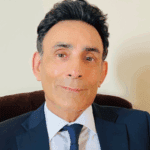 |
Medically Reviewed By:
Board-Certified Psychiatrist and Addictionologist
|
 |
Clinically Reviewed By:
Board Certified Clinical Social Worker
|
Our Verifications & Affiliations
Addiction Treatment Therapies
Yes, Your Insurance Covers Detox and Rehab Treatment.
Get Family Support Now
Supporting Families Through Recovery
We understand addiction affects the whole family. Our comprehensive family program helps rebuild trust and restore relationships.
Weekly Family Therapy Sessions
Educational Workshops
Support Groups
Communication Skills Training

